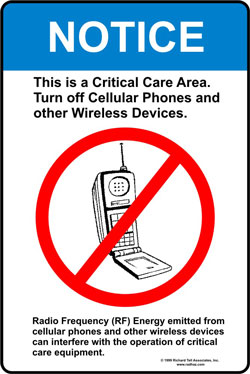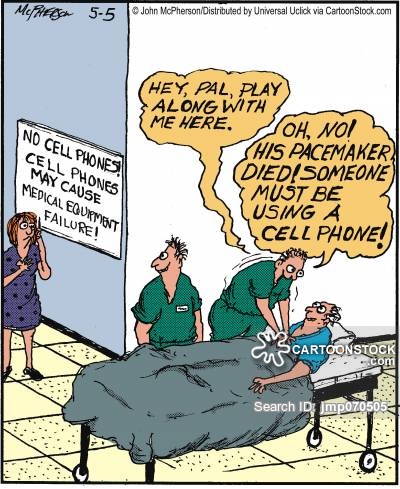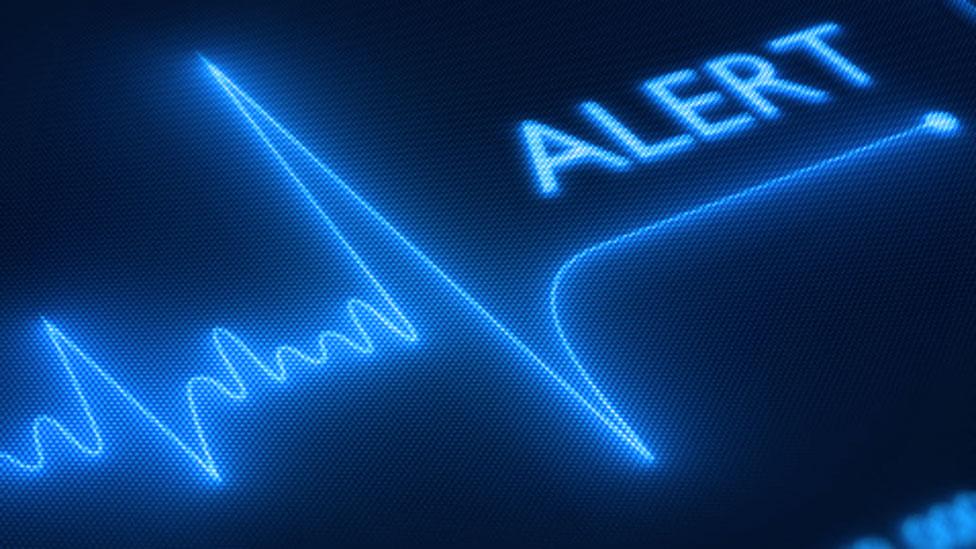Cell phones have become the staple of our modern society, with kids from as young as elementary school to senior citizens owning at least one. Therefore, there’s very few cases that cell phone use isn’t “okay”, such as the movies, while driving, etc . However, I remember when I was younger, during the time my grandfather was in the hospital, my parents were reminded the use of cell phones wasn’t permitted as we’d walk into his room to visit. Little me being skeptical thought that doctors just didn’t want the extra noise of people talking. Now I’ve noticed hospitals’ posted signs saying that cellphones are prohibited because it interferes with their equipment? I guess that’d make sense… but how? Is there any evidence? Are cell phones an interference hazard to medical devices in hospitals?
First, I want to fill in the gaps on what cell phone interference is defined as. According to an article from BBC on May 14, 2013, it depends on three thing: “the intensity of the signal, frequency of the signal, and degree to which equipment is shielded”. When we turn our phones on it automatically transmits signals, electromagnetic waves, aimed to make contact with a link in order to send or receive, texts, calls, emails, or other data. In reality, any wire in a piece of medical could serve as the link between these electric currents and the disruption of the medical device. On a positive note, our technologically advanced day and age enables the latest of medical devices’ internal wires to be shorter to avoid such hazards. Small risks like this truly do have an overall empowering effect on public health.
Now if you’re thinking what I’m thinking, how’s this particular interference raised concern throughout so many years? According to recent anecdotal reports of hospital staff about the electromagnetic interference to medical equipment caused by cell phones. In particular, the United States Food and Drug Administration received more than 100 cases dealing with this suspicion. In due time, Wall Street Journal June 15, 1994’s[1] front page article cited a series of the most “extreme (and sensational)” case stories. Of which three years later, similar ancedotes from the United Kingdom[2] reported “43% of these interference incidents would have had a direct impact on patent care and were rated as serious”.
The above research I found demonstrates ancedotally if cell phones are an interference hazard to medical devices in hospital. Which isn’t reliable to find a justifiable conclusion. This is where I began to find studies that specifically concerned the risks of electromagnetic waves to medical devices in hospitals. An article in Health Physics from January 2002, tested 33 medical devices using general communication signal emissions, of which only 4 were functionally disrupted. While this wasn’t a comprehensive analysis where multiple environments and and devices performed, they concluded “most medical devices in the hospital to be immune to cell phone emissions“. This provides means of reliable basis for future studies, such as in a Critical Care Medicine article from April 2004. Here, in a controlled laboratory study setting, 14 medical devices’ operations and malfunctions were evaluated in close proximity (specifically, three feet) from cell phones instead. As a similar replication of Health Physics‘s study, Critical Care Medicine‘s resulted in cell phones placed three feet or less to medical devices “can cause malfunction of these devices“.
While the studies I found show both rejecting the null hypothesis and accepting the alternative (cell phones do interfere with medical devices in hospitals) and accepting the null hypothesis and rejecting the alternative (cell phones don’t interfere with medical devices in hospitals). However, I come to fail to reject the null hypothesis because the data isn’t sufficiently persuasive enough for us declare such a conclusion, yet. There may be many other reasons as too why or how cell phones became to be undesirable in hospitals? For example, as a hygiene issue? A study on Southern India’s healthcare workers found that “95% of their phones were contaminated with bacteria”. Multiple other studies found hospitals and patient’s homes in Barbados and Turkey showed “contamination rates of 40%”. It’s important to realize that some of the bacteria could be immune to differing antibiotics.
Without a doubt, hospitals are one of the most stressful environments. Cell phone use, for all we know, has the potential to fray the nerves and many lives at stake. Though rare, cell phone interference still appears to be a real threat. Therefore, in my opinion, until there’s been more reliable (control randomized) experiments and we’re no relying so heavily on information from anecdotal evidence, it’s safe to say that cell phones’ electromagnetic waves aren’t as big of a hazard towards medical devices in hospitals. Whether it be for sake of health or etiquette, turn of your cell phone in hospitals regardless. Better to be safe than sorry.
Works Cited:
[1] Clutter on airwaves can block workings of medical electronics. Wall Street Journal. June 15 1994.
[2] Medical Devices Agency. Electromagnetic compatibility of medical devices with mobile communications. Medical Devices Agency DB9702; March 1997.



